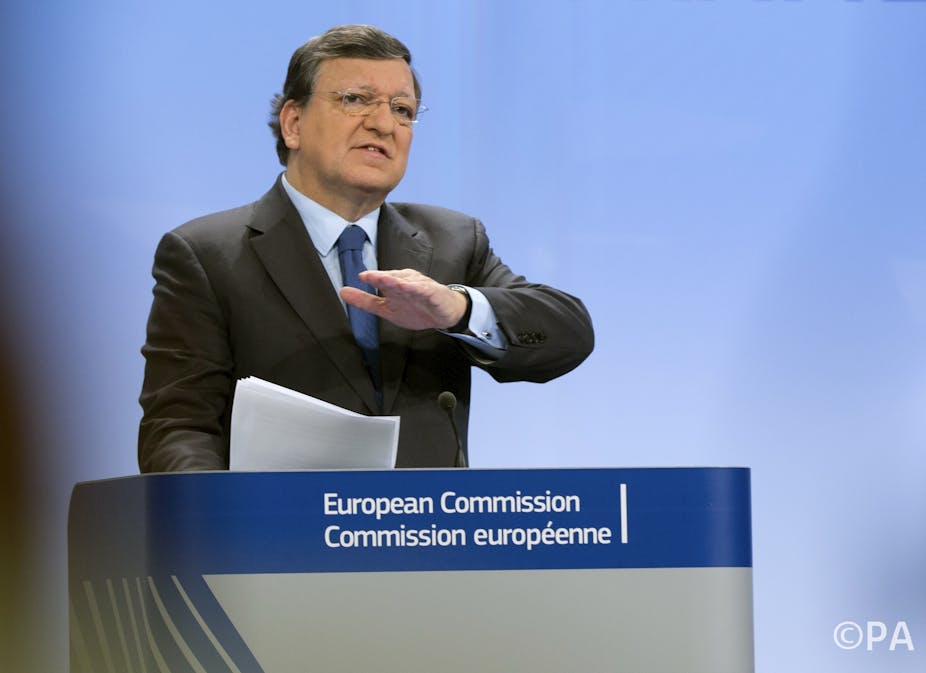President of the European Commission José Manuel Barroso’s comments on Scottish EU membership during his recent interview with Andrew Marr were discredited as an example of the fear-mongering pervading the debate on Scottish independence. But they did raise an interesting question: what relevance do other struggles for independence hold for Scotland in the context of EU accession?
Barroso suggested that the obstacles Kosovo faced in its bid to join the EU set a precedent for Scotland. He also referred to Catalonia in suggesting that member states could be motivated by their particular interests when granting accession to the EU. Both of these histories provide important insights for Scotland’s potential accession, though perhaps not in the way Barroso intended.
You don’t need to have been to Kosovo to know its economic and political landscape is a little different to Scotland’s. When I went to Pristina on a field trip in 2005, I stayed in a high-rise with an exterior pock-marked by bullet holes. The point being, Kosovo emerged from Serbia following a violent war. Serbia was not a member of the EU when Kosovo declared independence in 2008. The reason why Kosovo has not been granted accession is the same reason Serbia is still negotiating membership itself: the Copenhagen criteria.
To join the EU, any candidate member state must satisfy the criteria. Agreed at the European Council in Copenhagen in June 1993, they broadly comprise three elements: the acceding state must be a democracy; it must operate a free market; and it must be able to take on the obligations of membership, including adherence to the aims of political, economic and monetary union.
Given Kosovo’s instability in the post-war transition period, it is not yet an official candidate for membership, only a “potential candidate”. Nonetheless enlargement of the EU to include Balkan states has been advocated on the grounds that, as we live in an interdependent world, stability elsewhere protects stability at home.
Accession of new member states to the EU must be distinguished from the wider issue of recognition of new states under international law, an issue which has often seen politics define law. Fundamentally, states are bound to respect the principle of self-determination enshrined in international law.
Question of statehood
Yet there is nothing new or revelatory about states attempting to deny a people statehood. Statehood brings certain privileges on the international stage, such as treaty-making and financial borrowing – and, critically, the creation of a new state demands a redistribution of resources. Spain’s historic reluctance to recognise new states may be, as Barroso indicated, linked to its particular interests in Catalonia rather than the more technical issue of the EU’s Copenhagen criteria.
The idea that member states’ particular interests in recognising new territories could play a part in EU accession, as opposed to international law, may appear somewhat defeatist. It runs counter to the process of EU enlargement over the past decade. No less than 22 new members have joined since 1993. Many Balkan states are currently negotiating membership and set to accede in the coming years. In addition, those who choose not to be in the EU but have competence can opt in to EU projects, as Norway and Switzerland have done.
Given the possibility of the UK opting to leave the EU, the most relevant comparison to the Scottish situation may transpire to be that of Denmark and Greenland. Denmark remained a member of EU predecessor, the European Economic Community, when Greenland left in 1985. Yet it bears reiterating that, within the EU, there is no precedent for when a “metropolitan part of a current member state” becomes independent, as Professor James Crawford and Professor Alan Boyle wrote in their report to the UK government from February 2013.
Such omissions from the EU discussions last week may have contributed to the bounce for the “No” vote. The fact that it was a low bounce might reflect the fact that for those motivated to hold on to Scotland’s EU membership, in a game of limited options, Barroso’s “extremely difficult” trumps Cameron’s “exit”. Or, more simply, it might reflect disengagement with the increasing black-and-white approach to a multi-faceted debate.

